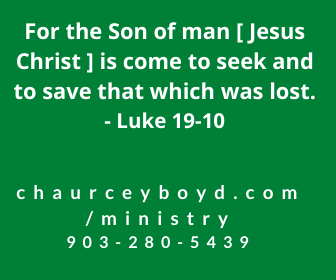The Mosaic or Jewish Passover is an annual celebration to remember and honor God’s deliverance of the children of Israel from bondage in Egypt. It is similar to the annual Juneteenth celebration in American which honors God’s deliverance of Black Americans from slavery in America. The word Passover includes the slaughtering of the lamb.
The Lord’s Supper also known as Communion is a periodic memorialization of Christ sacrifice for our sins.
The Lord’s Supper or Communion.
1 Corinthians 11:11-34 describes the Lord’s Supper. The name comes from 1 Corinthians 11:20 which says: When ye come together therefore into one place, this is not to eat the Lord’s supper.
To understand that verse one must examine the context in which the verse appears. Paul is admonishing Christians about their failure to properly participate in the Lord’s Supper. Some of them were coming there just to eat food and/or drink and get drunk. So Paul tells them they were coming there for the wrong reason. That is, they were not truly coming there for the Lord’s Supper. 1 Corinthians 11:21-22 explains that is exactly what he was saying:
(21) For in eating every one taketh before other his own supper: and one is hungry, and another is drunken.
(22) What? have ye not houses to eat and to drink in? or despise ye the church of God, and shame them that have not? What shall I say to you? shall I praise you in this? I praise you not.
There are some who fail to grasp what the Lord’s Supper is about. They think it is talking about the Passover the Lord ate right before his crucifixion.
But 1 Corinthians 11:26 resolves that issue. For it says: For as often as ye eat this bread, and drink this cup, ye do shew the Lord’s death till he come.
Notice the difference between the purpose of the Mosaic Passover that God told them to memorialize.
The Mosaic Passover is about memorializing God delivering the people from natural bondage by other humans.
The Lord’s Supper is about memorializing God delivering the people from their own sins through Christ being our Passover (1 Corinthians 5:7), the lamb of God sacrificed for our sins.
At his last Mosaic Passover before his death, Jesus gave the instructions for the Lord’s Supper that was to come after he died (Matthew 26:26-28; Mark 14:22-4; Luke 22:17-20; 1 Corinthians 11:23-26). It could not have begun before his death.
Some denominations and churches participate in the Lord’s Supper every time they meet, some every week, some every month and some at various other frequencies. The Bible does not give a specific frequency.
Mosaic Passover
The Mosaic Passover celebration or holiday or holyday was instituted under the Old Covenant as described in various scriptures (e.g., Exodus 12:13-14,24). Additional scriptures concerning the Mosaic Passover include Leviticus 17:11; 23:5-7, and Numbers 9:1-5.
The Mosaic Passover is a feast commanded by God under the Old Covenant.
In Exodus 12:47-49 we have:
(47) All the congregation of Israel shall keep it.
(48) And when a stranger shall sojourn with thee, and will keep the passover to the LORD, let all his males be circumcised, and then let him come near and keep it; and he shall be as one that is born in the land: for no uncircumcised person shall eat thereof.
(49) One law shall be to him that is homeborn, and unto the stranger that sojourneth among you.
Under the New Covenant per Colossians 2:14-17, Passover as a feast is an ordinance that is nailed to the cross and therefore not binding on an individual.
Yet, it is good to participate in Passover for both Jew and Gentile if one so chooses so as to honor God’s role in delivering folks from bondage. Indeed, even under the Old Covenant, the stranger who got circumcised could participate in Passover even though they and their ancestors were not part of those God delivered from bondage in Egypt.
In Exodus 12: 43 we have And the LORD said unto Moses and Aaron, This is the ordinance of the passover: …
And the Lord God said in Exodus 12:14-16:
And this day shall be unto you for a memorial; and ye shall keep it a feast to the LORD throughout your generations; ye shall keep it a feast by an ordinance for ever. Seven days shall ye eat unleavened bread; even the first day ye shall put away leaven out of your houses: for whosoever eateth leavened bread from the first day until the seventh day, that soul shall be cut off from Israel. And in the first day there shall be an holy convocation, and in the seventh day there shall be an holy convocation to you; no manner of work shall be done in them, save that which every man must eat, that only may be done of you.
In the first month, on the fourteenth day of the month at even, ye shall eat unleavened bread, until the one and twentieth day of the month at even (Exodus 12:18).
Notice that the Passover is best described not as a single memorial day but as a period of days where the word day in Exodus 12:14 is used figuratively to refer to a space of time beginning the fourteenth day of the month for seven days. Notice that God commanded a seven day feast to be associated with this memorial. The feast is known as the Feast of Unleavened Bread such that any bread the Israelites ate during those seven days was to be unleavened bread as no leavened bread (with yeast) was to be in their houses. Yet, it is also right to call it the Passover Feast or simply Passover. Note that some people say Passover is the day preceding the seven day period. Hence, they say there is a Passover Day and a Feast of Unleavened bread. Either way the event of Exodus is memorialized as that is what is most important.
In Genesis 17:1-14 God makes an everlasting covenant with Abraham. Part of this covenant required Abraham and every male seed throughout every generation to be circumcised on the 8th day. This included strangers who wanted to join themselves to God’s people as says Genesis 17:7 and Exodus 12:48. Yet, in Acts 15 the apostles determined that circumcision was not now necessary for salvation into God’s family. Therefore, when the Bible mentions terms like for ever and throughout generations we know it is conditional in that God not man can end the requirement. That God did with the coming of Christ. He did it for circumcision. He did it for feasts like Passover.
Jesus took part in the Mosaic Passover for the final time with his disciples as described in Luke 22:1, 7-20.
See my article entitled The Words Easter and Passover for more information on the word Easter as translated in the KJV (Acts 12:4).


